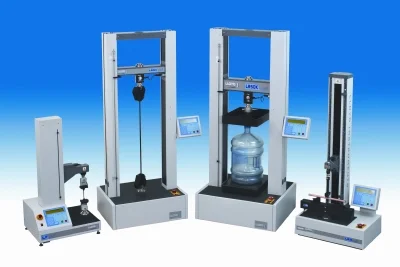Introduction
When it comes to testing materials, industry field experts are frequently faced with two categories of tools: testing machines (UTMs) and specialised testers. Knowing the differences between these devices can greatly influence how effective and efficient testing procedures are carried out. This article explores the variances, benefits, and uses of these testing equipment to assist individuals in making informed choices.
Universal Testing Devices
Universal testing machines are known for their versatility. They can conduct tests like tension tests and compression assessments across industries such as construction and aerospace.
One key benefit of UTMs is their capacity to handle a range of materials ranging from metals to polymers effectively. This versatility allows testing experts to assess samples with just one device. While they provide extensive functionality, UTMs need precise calibration and setup to guarantee precise outcomes. Users need to take into account the machine’s capabilities, as certain UTMs may not be able to manage forces or bulky specimens.
Specialised Testers
Specialised testers differ by concentrating solely on types of tests or materials. This equipment is tailored for accuracy in a field, making it perfect for situations where precision and dependability are crucial. Areas like electronics and textiles might use testers to guarantee product excellence and adherence to regulations.
Skilled testers frequently highlight their accuracy and quicker testing speeds for tasks they are designed to carry out efficiently and effectively. For example, a hardness testing device customised for evaluating metals could yield results compared to a Universal Testing Machine (UTM) employed for similar purposes. Nevertheless, the drawback of testers is their focus; they may not be capable of conducting a broad spectrum of tests and may necessitate supplementary tools for thorough evaluations.
Selecting the Appropriate Gear
Choosing the testing equipment depends on factors such as the materials being tested and the specific types of tests needed within a set budget limit. Universal testing machines are highly beneficial for companies that value versatility and perform assessments efficiently by handling tasks with a single device.
Alternatively, specialised testers are suitable for situations requiring meticulousness in tests. When an organization frequently performs tests on comparable materials, acquiring specialised tools can boost both accuracy and efficiency. It’s crucial to assess the testing requirements and compare the flexibility benefits with the precision advantages before reaching a conclusion.
Maintenance and Operational Tasks
UTMs and dedicated testers both need upkeep to maintain their performance and precision over time. Conducting inspections and adjustments is essential for these devices to ensure they function at their best. Proper operator training is crucial to prevent errors and protect the equipment from harm due to mishandling.
Operating both types of machines effectively requires a grasp of their complexities; universal testing machines need skills, whereas specialised testers call for expertise in specific applications knowledge; providing training ensures operators can fully maximise the potential of these machines.
Future Trends in Materials Testing
As technology progresses, the equipment used for testing materials also undergoes advancements and enhancements. Innovations in automation and digital technology are changing the way tests are performed, making procedures more effective and outcomes more precise. Universal testing machines and specialised testers are also seeing improvements as a result of these changes in the industry.
UTMs have become more efficient thanks to automation features that streamline their operations effectively and efficiently without the need for oversight. Sophisticated software integration enables these machines to conduct analyses with human intervention. Expert testers are also reaping the rewards of progress.
Conclusion
Businesses looking for testing solutions should grasp the distinctions between testing machines and specialised testers. Each type of equipment offers its advantages. UTMs provide flexibility, and specialised testers ensure accuracy. It’s crucial to evaluate testing needs to choose the right machine. Adopting technologies in materials testing will boost the capabilities of these tools and improve the reliability and efficiency of testing procedures.

